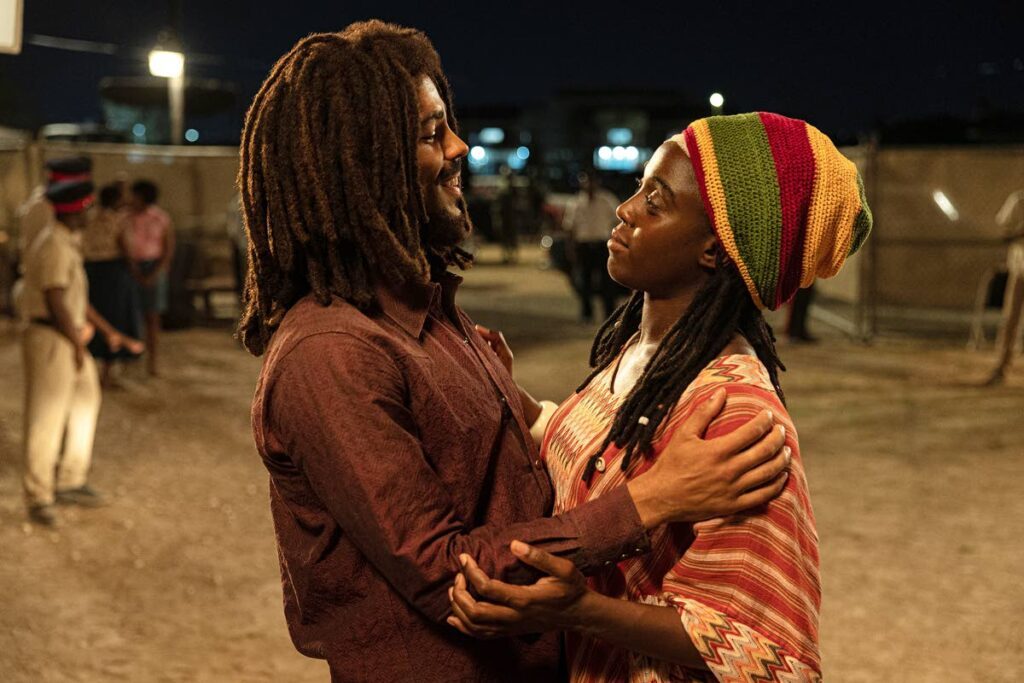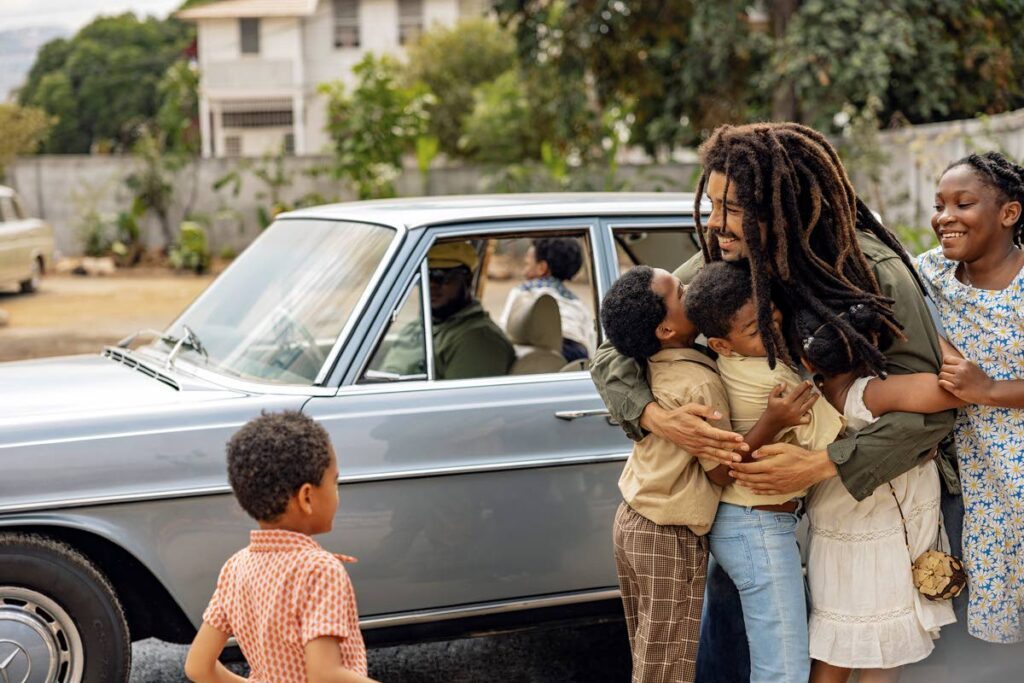Bob Marley biopic: Too much love?

Bob Marley has been dead now for longer than he was alive, but for some of us he was one of the people who shaped our youth. After “fake news” spread in 1975 of the death of His Imperial Majesty Haile Selassie, he sang Jah Live; for many of us, Bob live, if not literally.
So don’t go to see Bob Marley: One Love if he’s one of your heroes and you’re expecting an accurate account of his short but eventful life.
This movie is an authorised version which includes production credits for numerous members of the Marley clan. Ostensibly directed by Reinaldo Marcus Green, it seems rather to have been directed by the Marleys, possibly too many of them – or else by no one at all.
Any biopic has to select symbolic moments, if it’s not to run for hours. This film veers between cramming in repeated flashbacks to a few episodes in Marley’s life and lingering shots of him staring thoughtfully into space.
The years of poverty in Trenchtown that followed the split between Marley’s English soldier father and teenage mother are omitted in favour of numerous images of young Bob and his mother on the bus to Kingston. The film squeezes in nanoseconds of contemporary Jamaican political history, which is crucial because it makes much of the One Love concert at which Marley got rival party leaders Michael Manley and Edward Seaga to clasp hands.
Remarkably, it manages to remove any suspense at all from the assassination attempt on Marley’s life. Blink and you might miss Cindy Breakspeare, mother of Damian – perhaps the most direct heir of his father’s talents – and Marley’s companion for several years.

So, ironically, unless you already know the story of Marley’s life, some of this film may make no sense to you; and if you are familiar with his biography, it still won’t make sense, because at many points it diverges from the facts.
Perhaps it should rather be considered the story of the making of the Exodus album, which in the film symbolises his recommitment to Rastafarianism after he was shot in Jamaica and went into temporary exile, and his reaching spiritual maturity.
Exodus was also the breakthrough album that made him a superstar globally and not just in the Caribbean (though No Woman No Cry, from Natty Dread, prepared the way).
Those of us who first heard the Wailers perform music from Exodus were shocked by the change, expecting the earlier, raw, passionate music that sometimes urged revenge for centuries of oppression: Concrete Jungle, Burnin’ and Lootin’, Small Axe – not love songs, or the rock-influenced and “creeping” effect (a perfect description) that the film Marley says he wants on tracks like Natural Mystic.
In this sanitised (or warped) history, it’s Marley, and not Island Records’ Chris Blackwell, who decides the Wailers need a change of style to broaden their appeal. Marley is shown spontaneously composing Natural Mystic for the album, when in fact he and an earlier incarnation of the band had released it years before. (This was while they worked with the mad genius producer Lee “Scratch” Perry, who got joint writing credits for it. In the film, Perry appears momentarily, when the very young singers audition for a recording contract; turned down at first after warbling a conventional ballad, they score with Simmer Down, which gets Perry skanking one-legged on top of the studio mixing console.)
But who were Peter Tosh and Bunny Wailer? This film isn’t going to tell you.
Similarly, Marley apparently writes Turn Your Lights Down Low for his much-put-upon wife Rita, and not for Breakspeare.
Still, One Love has good points. Taken at face value, it’s watchable, and as the authorised version, it has the family’s permission to use real versions of Marley’s music.

British actor Kingsley Ben-Adir, who has no Jamaican background, has spoken extensively of the work that went into his performance: he mastered Jamaican patwa, Marley’s voice, the frenzied dance movements that lead one to think Marley got his sense of rhythm from his father’s, English side of the family.
Ben-Adir also conveys Marley’s charm and charisma, which make plain why it was decided to transform the band from the Wailing Wailers into Bob Marley and the Wailers. Ben-Adir is several inches taller than the stocky Bob, but somehow succeeds in making that fact unobtrusive, though his height simultaneously helps convey Marley’s authority and gravitas.
Nevertheless, he’s a pretty boy; his closest modern regional counterpart is probably Kees. Cold ground was never this Bob Marley’s bed last night. You could see the real Marley had lived through the tough times only faintly hinted at in the film; he had a lean and hungry look, older than his years, which had hardened him. Some of the early music blazes with an understandable anger at the injustices he lived through and knew about, not the benign spirituality and enlightenment of which Exodus is presented as the culmination. The sainted Bob of One Love isn’t dangerous, and only loses his cool once.
To be fair to Ben-Adir, he isn’t given a lot to work with, despite being onscreen in almost every shot. Overshadowing his careful impersonation, the best performance in the film is easily that of Lashana Lynch (another British actor) as the wise and long-suffering Rita, who leads him into the Rastafarian faith and endures his relentless womanising, softened by the declarations that Marley can’t do without her.
She too snaps only once, though Lynch makes you wonder, without saying a word, if she suspects the love songs written in London were not for her. Lynch’s filling out of this scanty role shows up some of the weaknesses in this reverent and yet half-baked hagiography.


Comments
"Bob Marley biopic: Too much love?"